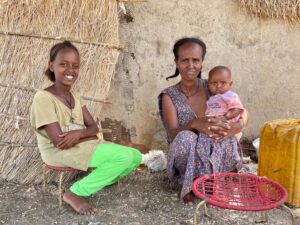Communities worldwide are bonded and uplifted by women. Women create life, hold families together and lead communities with strength and resolve. That is precisely why they are often the targets of persecution during power struggles.
Women’s bodies have been used as a weapon of war throughout history. We see it in the gender-based violence faced by women and girls in Tigray and the Democratic Republic of the Congo, in forced sterilizations of Uyghur women in China and the evolving threat to women’s reproductive rights in the United States.
This weekend, many in the Jewish community will observe a somber and reflective holiday called Tisha b’Av. While not as widely known as many other Jewish holidays, Tisha b’Av – the “saddest day of the year” – serves as a crucial reminder of many tragic events in our history and a time to reflect on how to combat such atrocities in the present.
Together, we remember the 10,000 Jews who died during the First Crusade (August 1096); the expulsion of Jews from England (July 1290), France (July 1306), Spain (July 1492); the start of World War I (August 1914); the formal approval of the Nazi’s Final Solution (August 1941); and more.
This week, I explore the themes of this solemn holiday and how the erosion of freedoms of women’s bodily autonomy serves as a harbinger for what could lie ahead. We have an opportunity to shift the course of history for generations to come if we act. Please read my latest column in the Jewish Journal.
Have a meaningful fast for those who observe Tisha b’Av.


